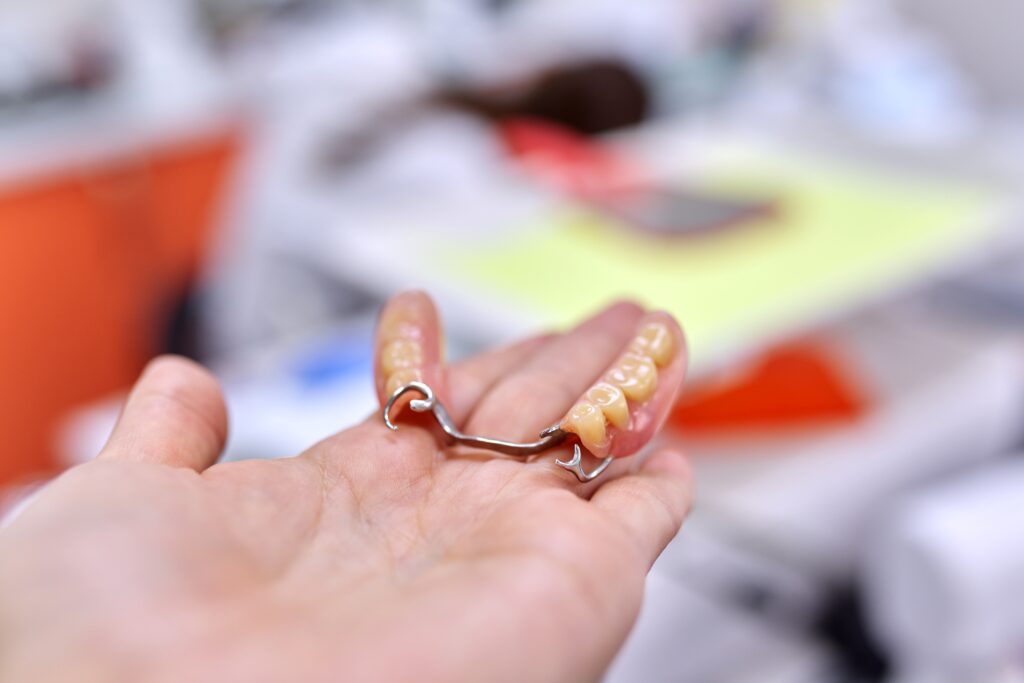A lost tooth means nothing to a young child. It marks a stage in growing up and generally denotes a unique gift from the Tooth Fairy hidden under your pillow. And let’s face it, and a missing tooth makes the wild smiles of youth endearing.
Unfortunately, many of the wonderful aspects of childhood fade into adulthood, and having a tooth fall out is not fun. That makes it challenging to correctly bite down, speak, and eat. Effective oral care is, in fact, a vital component of promoting and preserving overall bodily health.
Dental bridges replace missing teeth and unite them with neighbouring brethren when teeth are lacking due to injury, infection, or another medical condition. A replacement tooth is a pontic in the dentistry industry, and the teeth on each side are abutments.
Who requires a dental bridge?
If you are missing a tooth due to an injury, gum disease, tooth decay, or a physical condition, your dentist may suggest a dental bridge in Calgary. A dental bridge can help you regain correct chewing and speaking abilities, stop the movement of your other teeth, realign your bite, and maintain your attractiveness.
Types of dental bridges
Traditional bridge
The most common dental bridge consists of a false tooth or teeth secured in place by dental crowns on either side of the gap caused by the lost tooth or teeth. Porcelain, gold, or alloys can be used to make conventional bridges. They are fixed in place with cement and can only be removed by a dentist in Calgary.
Implant bridge
This bridge joins an implant surgically inserted into the jawbone with an artificial tooth as the abutment tooth. The implant-supported abutments are subsequently secured to the bridge using cement. With this procedure, the implant must be placed in the jawbone, and the abutment tooth must be connected to the implant in two separate procedures.
These treatments take longer to complete and are typically more expensive than a traditional bridge since they involve more processes and some healing time. But, if you have several missing teeth or your natural teeth are weak, this can be your best and strongest alternative.
Cantilever bridge
A dental crown secures the pontic, so this form of bridge is comparable to a conventional bridge. Yet, only one neighbouring healthy tooth is necessary for the crown to be anchored. Only specific circumstances allow for the usage of the cantilever bridge.
Maryland bridge
Two healthy teeth are needed on either side of the gap for the Maryland dental bridge. Nevertheless, a metal or porcelain framework is connected to the backs of the original teeth in place of crowns. Similar to a cantilever bridge, this works only in certain circumstances.
Benefits of dental bridges
To maintain the shape of your face
Your body will try to close the gaps left by missing teeth. Your remaining teeth are pushed together, changing the structure of your face. The tooth root stimulates the cells in your jawbone. Your jawbone deteriorates without a tooth root, causing face collapse and subsequent tooth loss.
Improves chewing ability
It’s challenging to enjoy the meals you like when teeth are missing. You can be in pain when chewing, which makes life harder. Your favourite foods shouldn’t make it painful to eat them. A bridge prevents food from being caught in an empty tooth socket and permanently relieves pain.
Prevent gum disease
Missing teeth impact your oral health in a variety of ways. Your teeth can become misaligned if a lost tooth is not replaced and all the remaining teeth shift to make up for it. Cleaning crooked teeth is more difficult. Bacterial pockets created by misaligned teeth are challenging to remove with floss and brushing. Gum disease is brought on by infected and inflamed gum tissue and can result in more serious issues. A dental bridge will maintain the alignment of your teeth and enhance your oral health.
It saves you some money
By halting tooth decay, bone loss, and other oral health problems, a bridge helps you save money. Dr. Carrillo can implant a bridge as a reasonably priced solution to replace damaged or missing teeth. The expense of bridgework is worthwhile for both your smile and overall wellness. With gaps in your teeth or sensitive gums, you can stop making extra dental appointments.
Speak with confidence
People with missing teeth frequently speak with a lisp or have trouble pronouncing specific words. Your ability to speak words in your mouth relies critically on your teeth. Try reading aloud and count how often your lips or tongue contact your teeth to understand what we mean.
Conclusion
A dental bridge is typically required when one or more teeth are lost. Finding a solution that compliments your smile and your preferences is necessary. It is best to replace missing teeth as soon as possible. If you have any inquiries, contact your dental office to arrange a consultation with the dentist, who will happily address them and offer advice.



